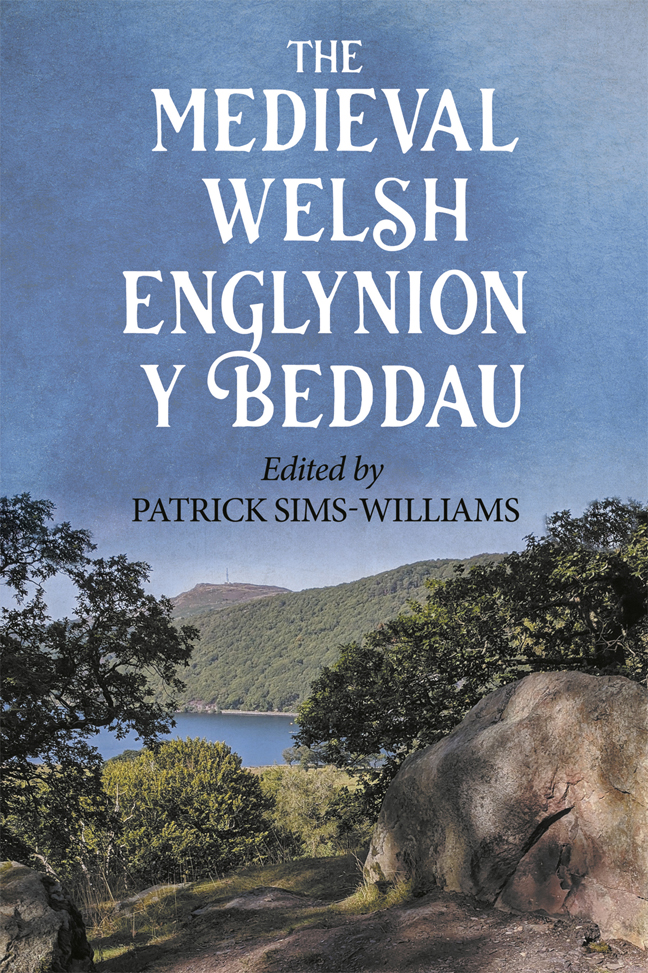 The Medieval Welsh Englynion y Beddau
The Medieval Welsh Englynion y Beddau 3 - The Growth, Relationship, and Transmission of the Texts
Published online by Cambridge University Press: 02 March 2024
Summary
It might be supposed that the extant series of Englynion y Beddau are the result of combining shorter, exclusively regional series comparable to the Irish poem on the graves of the Leinstermen. Good evidence to the contrary is provided by the stanzas which group more than one grave place within the indivisible unit of the englyn (I.4, 7, 8, 10, 12, 13, 26, 36, 39(?), 44, 46, 50, 71; III.3(?), 7, 9, 13). While some of the paired places are very close together (I.4/III.13, I.46, III.7) or at least in the same part of Wales (I.7, I.12(?), I.36, III.3(?)), others of them are widely separated, notably I.10/III.9 (graves in England and Wales), I.26 (Ardudwy and Brycheiniog), and I.71 (Dinorben and Dyfed), and quite likely I.8, I.13, and I.50 as well. Evidently their authors were not composing englynion for series organised on a regional basis.
A work not limited to a narrow geographical area can nevertheless show a regional bias, owing to the limitations of its author’s knowledge or interests. An example is the Old English tract on ‘The Saints who Rest in England’, which reached its current form c. 1031. Despite its title, the first half is biased towards Northumbria and Mercia, while the second half, which was evidently added later, ignores Northumbria and is biased towards Wessex. Another good example is the eleventh-century(?) Irish tract on the ‘Wonders of Ireland’. In its fullest form, in the Book of Ballymote, it has 34 entries, of which less than a third refer to Munster and Leinster, indicating a northern or central Irish place of origin for the tract. The eleventh-century Latin version lacks items 15–20, 25, 27–28, 30 and 33, nearly all of which refer to places in Meath. This indicates that the vernacular ‘Wonders of Ireland’ was originally a regionally biased northern compilation, subsequently conflated with a strongly regional Meath collection of marvels. It is interesting from our point of view to note that the latter (Meath) collection is not dispersed through the expanded text; on the contrary, its entries tend to survive in clumps, between item 15 and the end of the ‘Wonders’. A similar tendency, and various regional biases (to be discussed later), can also be detected in other compilations, such as Bonedd y Saint and Englynion y Beddau.
- Type
- Chapter
- Information
- The Medieval Welsh Englynion y BeddauThe 'Stanzas of the Graves', or 'Graves of the Warriors of the Island of Britain', Attributed to Taliesin, pp. 49 - 81Publisher: Boydell & BrewerPrint publication year: 2023


